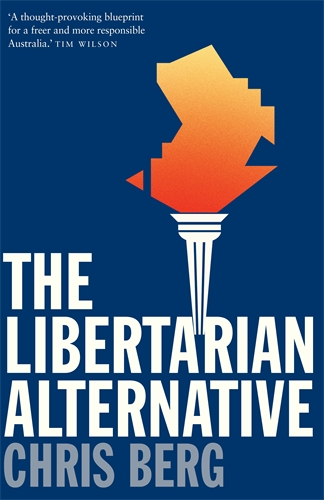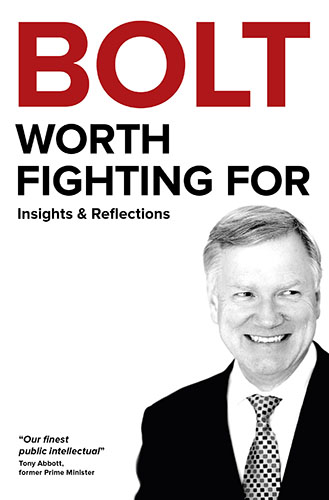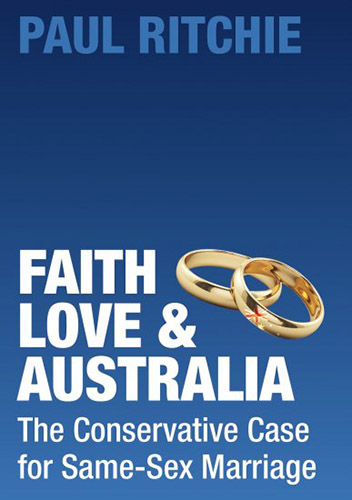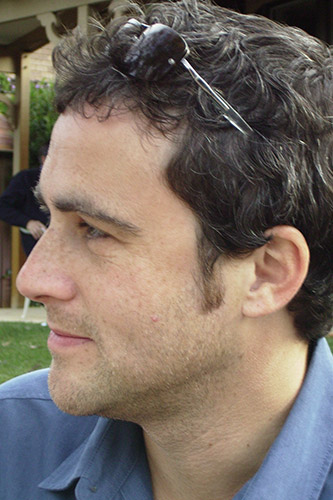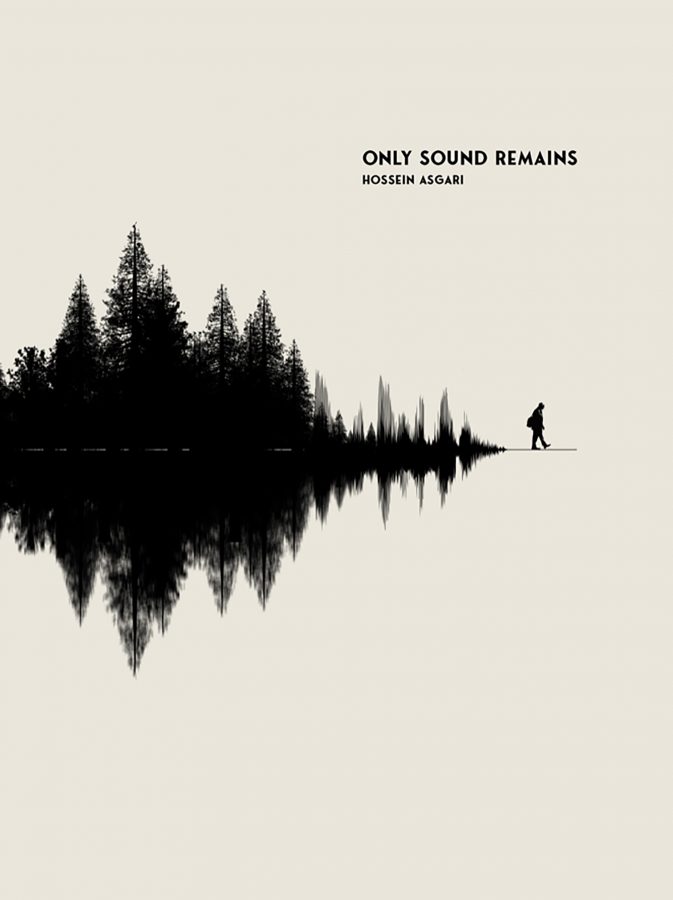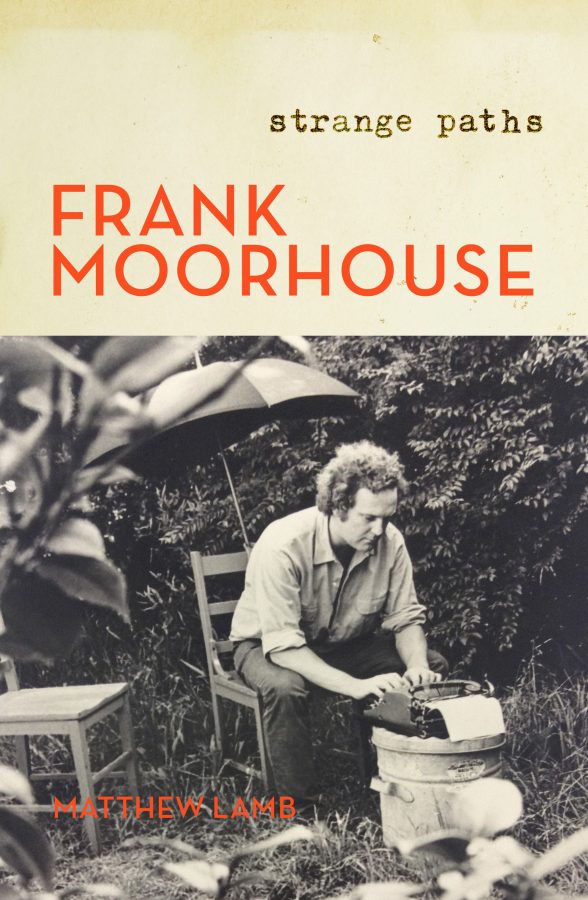In October 1976 an aged Austrian economist assumed the podium in a Melbourne hotel and delivered, extempore, a speech that set libertarian hearts racing. The economist was Friedrich Hayek and the occasion was the Annual General Meeting of the Institute of Public Affairs (IPA), which was then in the process of transforming itself into a radical free-market think-tank of the kind we now associate with neoliberal economics. Still buzzing from Milton Friedman’s visit to Australia in 1975, the IPA’s members lapped it up. A standing ovation followed Hayek’s address. So too did an effusive editorial in the next edition of IPA Review:
Professor Hayek came to Australia at a peculiarly appropriate time. It is clear that this country has reached a grand climacteric, a fateful parting of the ways so far as its political and economic future is concerned. The momentous question is whether, in the years ahead, libertarian values are to prevail, enterprise, both corporate and individual, is to be properly rewarded, and the market is to be allowed to perform its traditional function of allocating the resources of the community in the most effective manner in the interests of all; or whether Government as such is to assume an even larger role in the distribution of resources and income, in the provision of so-called Welfare and in the general direction of the lives of the people. In short, what is ultimately at stake is the survival of individual freedom.
There you have the libertarian critique – or right-libertarian critique – in a nutshell: the free market as the guarantor, not just of an efficient economy, but of human freedom and flourishing. It’s a long way from the traditional conservative worldview, in which family, nation, religion and community form the key components of the desirable life; and, as we’ll see, its effects on the right more broadly have been problematic. But one has to admire, even if only grudgingly, its boldness and simplicity. ‘The threat to freedom in the economic sphere,’ the editorial continues, is ‘only part of a wider threat to the whole of our civilisation, to morals, conventions and institutions laboriously evolved, not deliberately planned, over centuries of trial and error.’ Backed up by their support band, the Centre for Independent Studies (founded in 1976, funnily enough), the IPA has been playing this stripped-down version of classical liberalism ever since.
How relevant is their critique today? Not quite as relevant as yesterday, on the face of it. In 2008 the world awoke to find that neoliberalism had not only led us into economic crisis but that, in doing so, it had destroyed the very things – national self-determination, the sense of a settled organic community – that the conservative parties who carried it forward claimed, and still claim, to hold most dear. The result has been a lurch to the ‘old’ right – to the ancient atavisms that liberalism is supposed to be able to do without. In Europe the anti-immigration right is on the march, while in the US Donald Trump is on the ballot. In Australia, too, the far right is back in the form of Pauline Hanson and her senators. True, a couple of ex-IPAers have just been elected to the Australian Parliament: Tim Wilson to the House of Reps and James Paterson to the Senate. But it’s unlikely that anyone who voted for them knew, or cared, that they were libertarians. As for Senator David Leyonhjelm – his election was a quirk of the electoral system and his prominence a reflection of the fact that the government needs his vote in order to get legislation through the Senate.
In one sense, then, this seems like an odd time to double down on the central Hayekian message of small government and economic deregulation. But the IPA is nothing if not tenacious, and Chris Berg, a Senior Fellow at the outfit, is one of its coolest heads. His new book The Libertarian Alternative sets out the right-libertarian creed with admirable poise and clarity. The worldview it presents will seem strange to many readers, especially to citizens of countries like Australia, where a communal, labourist ethic still obtains, or is at least a major part of the ideological mix. But as a guide to right-libertarian thought, and its profound limitations, it’s extremely valuable.
Though Berg is not a libertarian of the anti-state variety, his brand of libertarianism is unencumbered by conservative affectations of tradition, national destiny etc. The Libertarian Alternative contains no flag-waving or (explicit) self-congratulation; no moist sermons on the importance of national character; and none of the culture-wars sneering that Berg’s fellow IPAers are apt to indulge in when talking to each other in the pages of IPA Review. Setting out the right-libertarian position as clearly and as simply as he can, Berg then applies it to a number of key areas – foreign policy, free speech, climate change – and argues that the libertarian lens is a far superior piece of equipment through which to view the world and its problems than the statist and communitarian alternatives. It will be said – I’ve already said it – that his worldview is largely responsible for the problems for which he claims to have the solutions. It will be said, too, and carrying on from that, that a certain amount of cheek accompanies many of his prescriptions. But there’s no doubt Berg’s view of the world is coherent. This is refreshing, even where it is infuriating.
I can’t let Berg get away, however, with one self-serving elision. This is his decision to use ‘libertarian’ in its ‘most prominent and popular sense: as a description of a political belief that has faith in property rights, free and open markets, individual rights, social liberalism and small government’. Now this is indeed the most ‘prominent and popular’ use of the word in the US and Australia; but there is another libertarian tradition that departs very sharply from some key assumptions in the IPA-style analysis. Berg writes as if libertarianism transcends the traditional left-right divide, and in certain respects it does. But in other respects it reproduces it faithfully. For while right-libertarians regard private property as the foundation of human freedom and flourishing, left-libertarians such as Noam Chomsky regard it as a fundamental impediment. For the first group the ability to earn a wage is the guarantor of your autonomy; for the second it is the guarantor of your unfreedom. Their disagreement is essentially one about the nature and desirability of capitalism – a word that barely appears in Berg’s book, for reasons on which I’ll speculate later. Suffice it to say for now that this is not a trivial difference, and for Berg to ignore the leftwing tradition is to present his own brand of libertarianism as representative of a whole philosophy as opposed to a political tendency within it.
The right-libertarian critique (as I’ll call it) rests on the principle of non-aggression, especially as it relates to property rights, which in the Lockean analysis derive from the time in which human beings first began to mix their labour with the land. Most, though not all, right-libertarians regard the state as a necessary evil: necessary because, without it, people would do violence to each other and steal each other’s stuff; evil because the powers needed in order to prevent such social ills necessitate a massive concentration of power that can be, and usually is, abused. The goal of the right-libertarian is thus simple: restrict the power of the state and allow the individual to flourish. Choices should be voluntary; and the assumption (which conflicts with the left critique) is that in a genuinely free market they always are.
Property, then, is both the expression of freedom and the vehicle for its dissemination; it grounds everything, pretty much, or everything desirable. It follows that, for right-libertarians, the exchange of property in the form of commodities is the most efficient and desirable means through which to allocate resources –that the market is the paradigm of non-coercive cooperation. The rhetorical tic whereby right-libertarians use economic language to describe non-economic things – as in the ‘marketplace of ideas’ – is a symptom of this worldview, and leads to some obvious absurdities, as when Senator Leyonhjelm recently implored Australians not to ‘choose’ to take offence, as if they were selecting a product from a shelf in Aldi or Harvey Norman. The concept of choice is fundamental. According to the right-libertarian worldview, which derives from a foundational belief in free will, there is no compulsion in a free marketplace. You pays your money and you takes your choice: a new iPad, Italian shoes, Christianity …
But how is the market to be made free? For Berg and his fellow right-libertarians the answer is as plain as day: government has to get out of the road and allow individuals to exchange their wares and enjoy their stuff without interference. Berg is no anarcho-capitalist; he does not believe, in other words, that the state violates the non-aggression principle simply by existing. But he does believe that pointless reform has become the sine qua non of government and that environmental and consumer protections have replaced trade quotas and tariffs as the principal impediments to the kind of free, efficient market that, under conditions of perfect liberty, would lead to true equality; ‘Control over the economy’, he writes, ‘is control over the people who make up the economy.’ In Berg’s view the state should finish the job of deregulation begun in the 1980s and leave the rest to us: free people exercising free choice in a free market.
The first thing to say about this prescription is that it is based on a rather perverse idea of the relationship between ‘the market’ and the state. Berg writes as if the modern state is an unnecessary and inefficient impost on those ‘enterprising’ individuals who would move society and technology forward, if only they were free to do so. ‘The astonishing thing about markets’, he writes, ‘is that they take this human constant [of self-interest] and make it valuable to society as a whole.’ Secure our freedom and our property rights and then fuck off, is the essential position. Lacking is any sense of the state as the enforcer of those property rights in the interests of a particular class – i.e. the class that owns most of the property. It’s as if the modern state simply popped into being and was captured by meddling bureaucrats, when in fact it emerged over centuries of conflict between different classes in a war for resources. The revolutions that did for the old aristocracies in the late eighteenth century – revolutions to which the ideas of classical liberalism were fundamental – were bourgeois revolutions. Right-libertarians are always careful to point out that the non-aggression principle does not preclude the use of aggression in order to safeguard the property rights of citizens. To which left-libertarians are apt to respond: ‘Well of course it doesn’t. That’s its whole point!’
There is something almost ungrateful, then, in the right-libertarian analysis. For while it would be too simplistic to say that the state reflects the dominance of the very class whose enterprise Berg is so keen to liberate, it would be a lot less simplistic than saying that the state is the principal impediment to a smoothly running market. The fact is that the market could not exist in its current form without the state, and that those who benefit most from the relationship are not welfare spongers or single mums but the bankers and hedge-fund managers whose ‘enterprise’ led us into the GFC and the multinational corporations who rip off the public and buy off the Clintons. What we have, as Michael Harrington put it in his 1962 book The Other America, is socialism for the rich and capitalism for the poor – a system in which problems beginning in the private sector need to be paid for with public money. (See also Mark Blyth’s Austerity for a vertiginous account of this dynamic.) If Berg wants to say that the relationship between capitalism and the state is an unhealthy one – fine. But to claim, as he does, that it’s capitalism (or ‘the market’) that is getting the shitty end of the deal is absurd.
Reading Berg you would have no notion that capitalism has just been through – no, is still in – a major crisis. Comparing the stats on business start-ups in 2003/4 and 2012/13 he notes glumly that they have ‘declined precipitously’ but does not mention the global crisis that fell slap bang between those two dates. His book contains no analysis of debt or the collapse of working and middle class wages, of collateralised debt objects or credit default swaps, of the role of China in the global economy. No mention is made of the Panama Papers, transfer pricing, or quantitative easing. ‘We’re on the edge of a revolution in the way we work [and] the way the economy functions’, he writes. Well, you wouldn’t know it from reading this book, in which precarious labour and the coming wave of automation are barely mentioned, let alone the crisis of realisation that is sure to follow hard on their heels. In fact The Libertarian Alternative has a distinctly period feel. A number of Aunt Sally-ish asides about the Soviet Union (‘Imagine a Soviet planner trying to decide whether pig gelatine ought to be allocated to explosives or cream cheese’) suggest an almost Cold War sensibility. Berg seems to regard Keynesianism and communism as separate manifestations of the same delusion, but in fact it’s Berg who resembles the ‘utopians’ of the former USSR – ideologues who would place the blame for all setbacks and reversals on the compromises made in a policy’s implementation. To those who say that capitalism is a big part of the problem his answer is more capitalism! The economy he seems to look forward to strikes me as a fantasyland – a Potemkin village of entrepreneurs imbued with Bastiat’s ‘spirit of free trade’.
I say ‘capitalism’ but the word barely appears in Berg’s book. Precisely why is an interesting question. Is it that right-libertarians see ‘the market’ and ‘capitalism’ as identical, as different ways of saying the same thing? Or would they be happy with some other form of market? If the former, why not say so? If the latter, why not say what kind of market they’d prefer and what they think is wrong with capitalism? This is a hugely important question right now: the kind of capitalism we’ve had for nearly forty years is under enormous pressure and there are some very interesting debates in progress as to whether or not we’re in transition to a different kind of capitalism or whether capitalism itself is on its way out. (Paul Mason’s recent book Postcapitalism, which argues that information goods are disrupting the traditional capitalist model, and may even end it, is a fascinating example.) This is a debate to which you’d think a free-market think-tank could (and should) contribute some bold and exciting analysis; and yet reading The Libertarian Alternative you’d think the subject never came up. Berg gives the reader numerous examples of small changes that could be made to the economy – getting rid of film classifications for example – and urges us to draw from these the broader lesson that deregulation is good and that government intervention is bad. But if his really is an ‘alternative’ model why not give us a big example? We can all agree with Berg that council regs governing street parties are a pain in the arse. But what about, say, transfer pricing and the trillions of dollars that multinationals contrive not to pay to the jurisdictions in which they make and sell their products? Is the problem there a lack of ‘freedom’ or an excess of it for some (very rich) people? These questions aren’t dodged; they’re simply unasked.
They’re unasked, I suspect, because the right-libertarians don’t have any answers to them, or because such answers as they do have are self-evidently preposterous. Take climate change and the environment. Two of the negative externalities of a system based on endless growth are pollution of the environment and the gobbling up of the world’s resources. But what is a free-market ideologue to say about the market’s inability to cope with these externalities? Well, they could find an article in Nature and suggest that a better way of pulling Japan and Norway into line over the issue of the illegal hunting of whales is to make it possible for conservationists to buy quota-subject whales. Or they could hedge their bets about the science. Berg does both.
Libertarianism is a political philosophy, not a scientific theory. It offers no guide as to whether climate change is caused by humans. But libertarian thinkers do emphasise the limits of human knowledge. This applies to the grand scientific models of the economy as much as to the grand scientific models of the climate. Policy approaches need to be devised in recognition of our lack of knowledge, not under the assumption of certainty.
Yes, libertarian thinkers emphasise the limits of human knowledge. But the limits of human consumption? Not so much …
What of that other negative externality: unemployment? What has the right-libertarian critique to say on that phenomenon, generally regarded by left economists as a reliable means of driving down wages and disciplining the working class? Even allowing for ideological differences, Berg’s sanguinity is alarming:
Paul Keating was once asked how he would respond to a worker who had lost their manufacturing job thanks to the liberalisation of the Australian economy. He replied: ‘What is your new job like?’ But this line assumes the economy is flexible enough to allow workers to move into new employment and firms to establish new opportunities for employment. An overregulated economy is one where people fall through the cracks. Those cracks are not created by market imperfections but by rules which prevent entrepreneurs from repairing the economy after disruptive change.
Right. And when the economy goes tits-up as a result of the, um, entrepreneurs who have taken advantage of, say, deregulation of the financial sector – what happens then? ‘Economic crises have always been with us’, writes Berg, in an existential aside that recalls Saint Matthew’s line on the poor. Come to think of it, what about the poor? Berg again:
Looking at income and wealth inequality is an extremely roundabout way of getting at the central issue of the lives of the poor. What we should be looking at is the patterns of consumption enjoyed by the poor. The accumulation of wealth by the very rich tells us virtually nothing about whether the lives of the poor are getting better or worse … The extra happiness gained by a poor person from a small increase in income is vastly more than what would be gained by a large increase for an already wealthy person.
Which makes you wonder why the ‘already wealthy’ people jump up and down like idiots whenever the government proposes to take an extra 1% in tax from their income, or a bit of their mining revenue, or a few crumbs from their superannuation, and why the stalwarts of the IPA are always the first to lecture said government on the dangers of economic disincentives. Berg, indeed, goes even further and suggests that we should be grateful to the rich for hoovering up all the luxury goods. ‘There is exploitation in the capitalist system,’ he writes; ‘But it is exploitation of the very rich, convincing them to pay a premium for what we can all buy much more cheaply.’ Berg does have one constructive and radical thing to say about poverty: that one of the best ways to alleviate it is to stop demonising ‘economic migrants’ and allow the free movement of people across borders. If we’re going to treat labour as a commodity, says Berg, then it should be a tradeable, transportable one. Indeed, trade and immigration are two sides of the same coin; to allow capital to globalise itself and tell labour to stay put is inconsistent, not to say unfair. Moreover, in restricting the ability of refugees to find paid work once they’re in Australia, the government creates the very underclass often blamed on immigration itself. It also, of course, stokes racism, which Berg very nearly acknowledges, though in the end he can’t quite bring himself to state the bleeding obvious: that this ‘incoherent’ policy is very carefully constructed by politicians whose ideological attachment to globalisation is really fealty to a particular class, and who know they can get a lift in the polls with a bit of coded nastiness in respect of the various dusky types who wash up on Australia’s shores.
It’s those politicians who are in the ascendancy in the post-GFC environment in Australia and elsewhere, and this poses a problem for the right-libertarians. For decades conservatives and libertarians could rub along quite happily. It was a marriage of convenience. Conservatism got a way to renew its attack on social democracy and the labour movement, gift-wrapped in the highly attractive idea that even vast discrepancies in wealth reflect the great democracy of the market and not inherited privilege – and neoliberalism got a way to circumvent its tendency to see human beings in the abstract, as mere consumers with rights. The modern citizen/subject was both a go-getting individualist and the contextualised creature of the conservative imagination. But then came 2008/9 and the recognition, slow to be sure, that economic libertarianism had destroyed not only the economy but also many of the people within it: communities of ‘working families’ whose members would once have voted for the free market/strong state candidate (Thatcher, Reagan, Howard) in a heartbeat. The result has been incredible – an earthquake in the ideological terrain. There is now a slim but real chance of a Donald Trump presidency and of a fascist or quasi-fascist party coming to power in a major European country. Our Pauline is the least of it.
So where might the new configurations of conservative and libertarian lie? Well, one product on offer in the marketplace of ideas that has grown in popularity recently is the tendency of certain conservatives to take the kind of classical ideas espoused by Berg and the IPA and treat them, not as good ideas in themselves, but as characteristic of Australia in a way that draws a thick black line between the proverbial them and us. In other words, Australian ‘tolerance’ (as enshrined in concepts such as free speech and women’s rights) has become a tool of social exclusion – the concept through which we express our suspicions about people from other parts of the world, especially Muslim parts of the world. ‘Our culture’ has become ‘our values’ – not in a healthy, affirming way, but in a way that distorts and exaggerates the problems of multiculturalism. The tiny Australian Liberty Alliance (ALA), which models itself on Geert Wilders’ Party for Freedom, is perhaps the most organised example of this tendency Australia has produced so far; but there is a strong whiff of it in the new Hansonism, too, and, of course, in the broadcasts and scribblings of certain, high-profile commentators.
The IPA was a strong supporter of Andrew Bolt in 2011, when Bolt was found to have breached section 18c of the Racial Discrimination Act, which makes it an offence to insult or offend a person on the basis of their race. Indeed, Berg’s last book, In Defence of Freedom of Speech, was subtitled From Ancient Greece to Andrew Bolt – a bathetic inscription, certainly, but one that showed a determination to treat all restrictions of freedom of speech as part of the same (very serious) problem. But that Bolt’s latest book, Worth Fighting For, is available through the IPA website strikes me as a little curious. The Bolt case was a cause célèbre in which the IPA took a principled stand. But Bolt himself is hardly a libertarian. At best he’s an ALA-style liberal: keen on the bits of classical liberalism that happen to advance his cause but essentially conservative in his attitude to, say, gay marriage or Operation Sovereign Borders. At any rate, I think it’s worth just noticing that although Berg explicitly rejects the label ‘conservative’ in The Libertarian Critique, the IPA is more than happy to be seen in some very conservative company.
Bolt’s book is a collection of columns and reflections. Organised by topic, it is dark on Malcolm Turnbull, sweet on Tony Abbott, angry at Adam Goodes, sceptical about human-caused climate change and absolutely mad for Batman (the caped crusader, not the marginal). But its underlying theme is character – Bolt’s, Australia’s, and the relationship between the two. The word ‘character’ comes up frequently: one section is titled ‘On Character, Mine Too’, another ‘Character in Politics’. ‘Character is still king here,’ writes Bolt at one point, referring to Australia; ‘That’s our reality. Our essential ingredient.’
The notion that Australia has – that any country has – an ‘essential ingredient’ is of course a very conservative one. Bolt is a seeker after what the Dutch call Gezellig – that indeterminate ‘social cosiness’ members of a nation share, or would share were it not for the efforts of progressives and special interest groups to divide us. In an entry from 2009 Bolt observes the ‘incredible array of people sharing my path … Anglos and Asians, Lebanese and Islanders, Aborigines and people checking their maps’, and asks, ‘how do we make an “us” out of all this? How do we build a belonging, so we are not each of us so dangerously alone?’ We do it as his (Dutch) parents did it – by recognising what is great about Australia and loving it in the way it deserves to be loved. In the section titled ‘My Australia’ he returns to the subject of his father-in-law, Claude, who died in 2005. Bolt’s account of that death is revealing:
Claude’s dying was wonderful, if I can say that without being misunderstood. He was in no great pain, and as he lay in the hospice, as gregarious as ever, it seemed all Australia came to pay its last respects to a mate. In they all came to say goodbye – bowlers, taxi drivers, a bookie, a surgeon, clerks, retired nurses and executives, a famous business leader, a lawyer. What stories we heard and laughs we had. What qualities came through that door – Australians whose word was their bond, who were loyal, who honoured their country, who were grateful, who were civil and modest, and who judged people by their character and not their class, faith, wealth or skin. They were Australians who didn’t want Claude to go without knowing they cared for him.
What was ‘wonderful’ about Claude’s death, it seems, is not that it was peaceful but that it revealed the true Australia – the Australia of loyalty, honour, gratitude, civility, modesty … No doubt the tribute to Claude is sincere, but to treat it as an opportunity to gush about Australia in this way strikes me as mawkish, not to say a little weird. ‘Suddenly I could see the intricate networks of associations and codes and clubs and loyalties and traditions and stories that bound people to this land and to each other …’ Now that’s Gezellig.
Who are the enemies within this state of would-be bliss and togetherness? They are the activists who, in the name of tolerance, perpetuate the very social division they claim to oppose. Why can’t we all just get along, Bolt wants to know; can’t we see that it’s what unites us that’s important and that differences of race and religion are as nothing to the great Australian ‘character’ – a character not tied, according to Bolt’s instruments, to any particular race or religion? It was in the spirit of anti-racism, says Bolt, that he wrote his columns on pale-skinned Aboriginal people; his argument was that a mixed-race heritage should afford an opportunity to transcend the petty differences of colour. In labelling him a racist those who attacked him not only maligned him, they also sowed the very racial division against which he’d raised his sword-pen in the first place! ‘Anti-racism has somehow become racism’, he writes. Australia has become ‘a nation of tribes’.
Actually, there is a good argument in here, though it’s not trying hard enough to get out. There is a tendency towards essentialism and identity politics on the left these days and Justice Bromberg’s ruling in the Bolt case was (in my view) the wrong one, one to which the non-appearance of the abovementioned columns in Worth Fighting For pays a kind of negative homage. But the trouble with Bolt, and with people who think like him, is that he just can’t seem to assimilate the point that we’re not all starting from the same place, and that the ‘character’ to which he’s so deeply attached is an essentially ideological construct, not completely false by any means, but falsely formulated and expressed. This is the compliment Bolt’s conservatism pays to libertarianism: ignorance of the massive gulf in opportunity, experience, wealth and (yes) character that separates, say, an Aboriginal woman living in the Northern Territory from a white middle class columnist in inner-city Melbourne. Try telling the former that Australia is a country where loyalty, honour and gratitude are sovereign. She’ll laugh in your face, if you’re lucky. For Bolt to continue to miss this point, and to claim into the bargain that because he was born here, lives here and ‘call[s] no other country home’ he is by definition ‘indigenous’ is a stunning bit of intellectual jujitsu.
And yet on he goes, and on, and on, strike after strike, kick after kick. The Recognise campaign is divisive. Adam Goodes’ war dance is divisive. Positive discrimination is divisive. The idea that all this ‘divisiveness’ might reflect some very real divides – some very real and deep divides stemming from the brutal truth that all the stolen land and stolen labour the colonists used to build their paradise now sits in a market to which most Aboriginal people have only theoretical access (Chris Berg and the IPA take note) – never seems to occur to him. The problem, he says, is not the systemic disadvantage created by centuries of racism; it’s the grog! This is callousness raised to the level of art.
Some reviewers of Worth Fighting For have noted the self-pitying tone of many of Bolt’s columns. But the important thing to recognise about this tone is not that it is merely unattractive – a fault in the author’s ‘character’ – but that it is part of a particular worldview. Bolt’s sensitivity to ad hominem attacks, his meltdown after Marcia Langton called him a racist on Q&A, his obsessive dwelling on the subject of bullies – these are symptoms of a mindset that either genuinely believes or affects to believe that white conservative Australians are now a persecuted minority. Confusing the priorities and assumptions of a class of broadly progressive urban people with the ‘elite’ of right-libertarian myth, Bolt cries a river of tears for himself: ‘Being wrong when you’re of the Left can be written off as just an excess of virtue, but being wrong as a conservative is pounced on as an excess of evil …Let others laugh and smirk. Life is long, and you will show them … Don’t these geese realise this is about their free speech, too, as they gloat around my scaffold?’ His subject in that last example is his prosecution under 18c, which started, not in the spirit of anti-racism, but with an accusation that pale Aboriginal people chose to identify as Aboriginal in order to advance their careers. That’s the Bolt approach all over: insult and incite and then cry ‘division!’ when your victim shakes an imaginary spear at you.
Conservatives and libertarians were united (more or less) on 18c, an issue in which traditionalist resentment about multiculturalism and a philosophical position on the proper relationship between the individual and the state could coexist, for a while. In the end, of course, the Abbott-led conservatives proved less steely than their pals in the IPA: the proposal to extend our liberty by repealing or revising 18c was, said Abbott, undermining the unity needed to push through a security bill that would end up, um, restricting our liberty. This was both depressing and hilarious, and showed just how fragile the relationship is between conservatism and right-libertarianism (not that everyone in the first constituency has given up on 18c, as evidenced by the recent Senate petition in favour of reviving the matter). So, might there be some other issue over which the two could come together?
Tony Abbott’s former speechwriter Paul Ritchie thinks there is: same-sex marriage. In Faith, Love and Australia he suggests that support for same-sex marriage is consistent with both the liberal belief in freedom, in that such a change would allow a group of people to do something they couldn’t do before, and with the traditional conservative support for the institution of marriage. This last point is of course the more controversial one on the conservative side of politics, with many arguing that same-sex marriage represents a radical redefinition of marriage and an unnecessary and upsetting encroachment on a bit of cultural terrain that traditionalists and churchgoers regard, in some peculiar way, as theirs. But for Ritchie these opponents of same-sex marriage have got the wrong end of the stick. Like David Cameron and Barack Obama, he takes the view that the growing clamour for marriage equality is evidence not of the radicalisation of society but of the increasing conservatism of the various ‘communities’ contained under the LGBTI rubric.
Ritchie makes a solid case, but he doesn’t pretend the case makes itself, or that everyone on the right will be easy to win over. He quotes US journalist Andrew Sullivan, who as a gay conservative in a macho and deeply religious country knows all too well how fraught this issue can be:
Marriage is alternatively praised and derided as a lynchpin of procreation, love, power, economics, convenience, morality and civil rights. And homosexuality similarly evokes opposing judgments: it is seen as a perversion; a source of identity, love and desire; a freely chosen lifestyle, a fabricated personality, a revolution against the status quo. And when these two contested areas are brought together, this matrix of interpretation is multiplied even more, so that, at times, it may seem as if no one is even speaking about the same thing.
Beautifully put. And yet a lot of these fights have been won or are well on the way to being so. In the past, for example, many participants in this debate would have rejected outright the notion that homosexuality is a form of love, not merely a form of sex. Today that simply isn’t the case. There is still a long way to go of course. But we’re getting there, step by tiny step.
So the time is right for Ritchie to claim that the time is right for same-sex marriage. And while his argument comes packaged in some rather lofty talk about the true meaning of conservatism and even a bit of Boltian self-pity about the fact that Christians are discriminated against when their arguments are dismissed as twaddle – as if having your beliefs rejected was the same as being hated for your sexuality – he does a bloody good job of it. At times it feels like a work of supererogation: do we really need to know, for example, how good same-sex marriage would be for the nation’s finances? (What if it turned out it was bad for the nation’s finances and someone argued against it in those terms?) Still, it’s probably better to bore people than short-change them.
Ritchie shares with Bolt a desire to combine the notion of individuality with the notion of the national community. This is the Holy Grail of modern liberalism/conservatism and my sense is that it will prove just as elusive. Certainly Ritchie’s attempts to extend the lessons of same-sex marriage to Australian conservatism more generally are unconvincing. Here he is falling between the stools with Chaplinesque panache:
In an age where our differences in identity seem to be testing our social fabric, where people are identifying more and more in terms of their ethnic, religious, political and sexual identities than their national citizenship, Menzies’ argument is that the various parts of who we are must strengthen the core that we share. We can and must find commonality in our differences, because that is the source of our national cohesion.
Precisely what ‘finding commonality in our differences’ would entail I’ve no idea; as for how finding it would improve ‘national cohesion’ – that is a mystery too. It’s a nice idea, I guess – that being different might bring us together. But really this is overreach. The case for same-sex marriage may bring some conservatives and classic liberals together. But my sense is that, more generally, liberalism/conservatism is heading for a messy divorce.
This should be no excuse for smugness on the left, sections of which are currently making some poor moves in the debate on marriage equality. We all know that the plebiscite was conceived as a ruse to kick the same-sex marriage can down the road; and the argument that in a representative democracy it’s the representatives who should take responsibility for changes to the Marriage Act is a logical and persuasive one. But we are where we are and to argue against a plebiscite on the grounds that it will cause harm to LGBTI people is I think, a tactical mistake – insofar as it will give the culture warriors of the right precisely what they want: a way to make the question of same-sex marriage an issue about the leftwing ‘elite’s’ contempt for the opinions of ‘ordinary’ Australians ‘The proponents of same-sex marriage seem terrified of debate’, writes Bolt. Great: so now the Herald’s favourite Sun has even more reason to believe that his arguments are so damnably acute that the leftwing elite must close him down. Perhaps a bit of libertarianism is exactly what the left needs just now.
Certainly we’re a long, long way from the heady days of the Sydney Push and Oz Magazine, when an alternative libertarian tradition obtained – one very different from the libertarianism offered by Berg and the IPA. I’ve argued that the latter ideology is impossible to square with the reality of late capitalism and that the deployment of classical liberal ideas (selective and opportunistic in the case of Bolt, honest but narrow in the case of Ritchie) is bound to look increasingly desperate as the economic scenery collapses and the class that vandalised the set moves to secure its advantage. But the profound limitations of right-libertarianism should not lead us to reject libertarianism per se. The question the left has to answer is this: do we have a coherent idea of human freedom and flourishing, of the proper or desirable relationship between the individual and the state? My sense is that we don’t, yet, and that the unwillingness to show our working out on fundamental issues like racism and marriage equality is a very worrying sign indeed. At any rate that’s the challenge: to redefine the idea of freedom in a way that has the power to address the mighty army of crises – economic, environmental, social – now bearing down on our little bit of line. No pressure chaps. In your own time …
Works cited:
Chris Berg, In Defence of Freedom of Speech: From Ancient Greece to Andrew Bolt (IPA, 2012)
Mark Blyth, Austerity: The History of a Dangerous Idea (OUP, 2013)
Editorial ‘Professor F. A. Hayek’s Australian Visit’, IPA Review (October-December, 1976).
Michael Harrington, The Other America: Poverty in the United States (Macmillan, 1962)
Paul Mason, Postcapitalism (Allen Lane, 2015)
